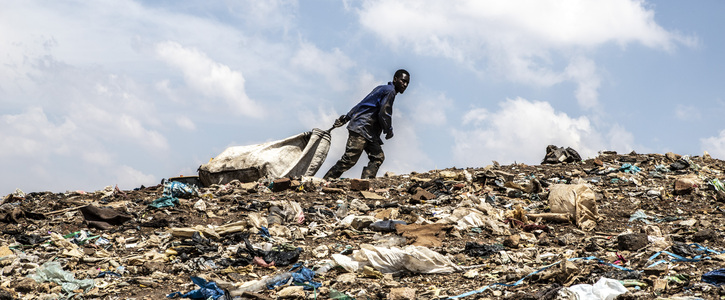100 signatures reached
To: Pikitup and the City of Johannesburg
Keep the landfills open to protect our city and the environment

1. Halt all plans for the privatisation of waste disposal and instead establish participatory policy processes to collaborate with reclaimers, residents, and environmental experts to develop sustainable, public, and inclusive waste management solutions for the city.
2. We demand that the City of Johannesburg and Pikitup take immediate action to ensure sustainable waste management and protect the livelihoods of landfill reclaimers. Specifically, we demand that they:
a. Keep Marie Louise and all Pikitup landfills open to general waste until equitable social plans for landfill reclaimers are fully negotiated and established.
a. Keep Marie Louise and all Pikitup landfills open to general waste until equitable social plans for landfill reclaimers are fully negotiated and established.
b. Implement all necessary projects to extend the operational lives of existing landfills
c. Negotiate comprehensive social plans for landfill reclaimers to guarantee well-remunerated, dignified work as landfills approach closure.
d. Partner with the African Reclaimers Organisation (ARO) to establish and expand reclaimer-led separation at source (S@S) services for residents
e. Sign the memorandum of understanding with ARO
Why is this important?
According to Pikitup, by this time next year, all four of its functioning landfills will be closed. Its solution? Pay R68 million in the 2025/25 year alone, to send the city’s waste to private landfills and enter public-private partnerships to build an incinerator and a mega landfill. This will put thousands of landfill reclaimers out of work, cause significant environmental harm, and leave the city drowning in its own waste.
As residents, we say no to opting for environmental and social injustice.
Pikitup and the City of Johannesburg created this crisis. The 2011 City of Johannesburg Integrated Waste Management Plan noted the looming closure of the city’s landfills and highlighted the urgent need for projects to increase the capacity of existing landfills, implement separation at source to divert recyclables from landfills, and build new landfills.
Instead, it delayed projects to increase capacity at the landfills, took no action to build its own new landfills, and continues to pursue ineffective and expensive separation at source by cooperatives and private companies. No one wants a mega landfill beside their home. If Pikitup does find a place for a mega landfill, it will be far from where people live, increasing diesel costs and causing great environmental harm. The reclaimers who have worked so hard for many years to keep our landfills open cannot just be thrown away like trash.
Their organisation, ARO, has implemented highly effective, environmentally sustainable separation at source projects that do not require reclaimers to form cooperatives. A recent ARO reclaimer led 18-month programme, ending June 2025, indicates that 945 reclaimers in Johannesburg collected 46 000 tonnes of recyclables that have been successfully diverted from landfills. ARO has solutions to avoid the double social and environmental crisis that will result from Pikitup and the City’s plans. As such ARO demands Pikitup and the City if Johannesburg to:
- Have a participatory policy process including ARO, residents, and environmental experts to develop other sustainable solutions to avoid privatisation of landfills;
- Urgently implement projects to move the drainage pond at Marie Louise landfill and purchase adjacent land to extend its lifespan;
- Implement similar projects at all other landfills;
- Negotiate social plans for landfill reclaimers so that they can continue to salvage and sell residents’ recyclables through reclaimer-run separation at source programmes;
- Implement reclaimer-led separation at source across the city to reduce the need for new landfills; and
- Sign the formal partnership agreement with ARO that has been languishing at Pikitup Head Office for years.
.png)
